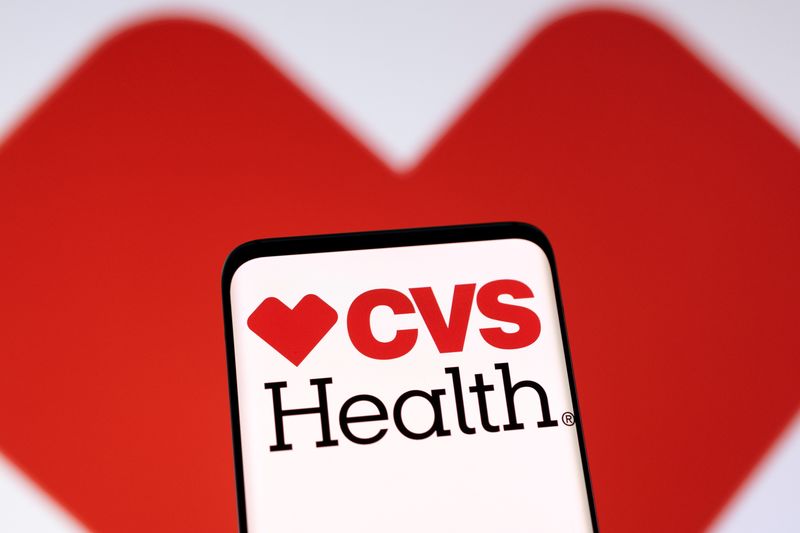CVS taps former UnitedHealth executive to run Aetna insurance unit
By Amina Niasse and Sriparna Roy
(Reuters) -CVS Health on Wednesday named Steve Nelson, a former UnitedHealth (NYSE:UNH ) insurance head, to run its Aetna business, where rising medical costs in the third quarter caused the company to preannounce an earnings miss last month.
The company last month also replaced CEO Karen Lynch with David Joyner due to troubles managing costs in that business.
It has come under investor pressure, including from activist hedge fund Glenview Capital Management, to improve its cost management.
CVS shares rose 10.5% in premarket trading. Stocks of CVS and other health insurers have been buoyed after Donald Trump was elected U.S. president for a second term on Wednesday.
Nelson's appointment is a positive move and "lends a lot of credibility and this is what Joyner needed to do," said James Harlow, senior vice president of Novare Capital Management, which owns more than 94,000 CVS Health (NYSE:CVS ) shares, according to a recent filing.
"This would be step one in terms of a recovery in that unit to establish credibility and good leadership there," he added.
CVS reported a third-quarter adjusted profit of $1.09 per share, less than half of the $2.21 it earned a year ago, due to unexpected spending on medical services in its health insurance unit. That was in line with its pre-reported earnings of $1.05 to $1.10 per share.
As of Nov. 5, the company's shares had fallen nearly 30% so far this year, compared with the more than 20% gain for the broader S&P 500 .
CVS, which also owns a pharmacy benefit manager and one of the largest U.S. retail pharmacy chains, said Nelson would begin immediately. Lynch had been running the business after Brian Kane left in August.
The company also named Prem Shah, chief pharmacy officer, as its group president. He will be responsible for the operational performance across its PBM CVS Caremark, CVS Pharmacy, and the company’s healthcare delivery businesses.
The company declined to provide a 2024 forecast on Wednesday. At least two investors said they were pleased with that decision.
During the third quarter, CVS recorded a charge of about $1.1 billion related to anticipated fourth-quarter losses in its insurance business that serves Medicare and individual health plans.
The company's medical benefit ratio, or the percentage of premiums spent on healthcare for its members, rose to 95.2% from 85.7% from the year-ago quarter, in line with its announcement last month.
The healthcare conglomerate confirmed it would take $1.2 billion in restructuring charges for layoffs, store closures and closing down certain businesses.
The company needs to "work across our enterprise and address macro challenges to the Health Care Benefits segment," Joyner said in statement.
CVS said net income fell to $87 million, or 7 cents per share, from $2.26 billion, or $1.75 per share, a year earlier.
Revenue in the health care benefits unit rose 25.5% to $33 billion, driven by growth in the Medicare and commercial health insurance businesses.
Sales in the health services division, which includes the Caremark pharmacy benefits business, fell 6% to $44.13 billion, primarily due to the loss of a large client.
Its pharmacy and wellness revenue increased 12.3% to $32.42 billion, buoyed by increased prescription volume.
Source: Investing.com
